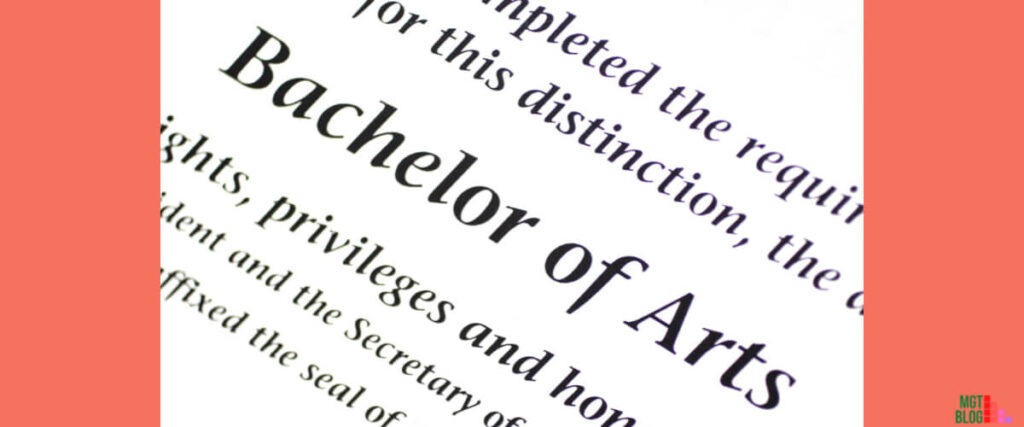Columbia university accepts a small number of exceptional students to transfer to the university and they have a transfer acceptance rate of 6.08%. It is very competitive to get admitted as a transfer student at Columbia University. Moreover, you must have a current minimum GPA of at least 3.91 but having a GPA of more than 4.07 will give you an advantage over other applicants.
Key Takeaways
- Columbia University is an Ivy League private research university located in New York City and it was established in 1754 as King’s College on the grounds of Trinity Church in Manhattan
- Columbia University is the oldest institution of higher education in New York and the fifth-oldest higher learning institution in the United States
- Columbia University accepts transfer students to the university from other similar programs
- In Columbia University, you won’t be able to become eligible to receive credit for accelerated programs except you have earned the credit through standardized examinations
Columbia University Overview

Columbia University is a very renowned university and one of the nine colonial colleges founded before the Declaration of Independence. Columbia University was established by royal charter under George II of Great Britain. It was renamed Columbia College in 1784 following the American Revolution. Columbia University’s endowment stands at $14.35 billion in 2021 and is ranked among the largest of any academic institution. The main campus of the Columbia university consists of more than six city blocks, or 32 acres (13 ha), in Morningside Heights, New York City. It owns more than 7,800 apartments in Morningside Heights, housing faculty, graduate students, and staff. The second campus of Columbia University is located in Manhattanville, an industrial neighborhood to the north of the Morningside Heights campus. Below are the rankings of Columbia University –
- #2 in National Universities (tie)
- #33 in Best Undergraduate Teaching (tie)
- #7 in Best Value Schools
- #57 in Most Innovative Schools (tie)
- #192 in Top Performers on Social Mobility (tie)
- #21 in Best Undergraduate Engineering Programs (tie)
- Biomedical
- Civil
- Computer
- Electrical / Electronic / Communications
- Industrial / Manufacturing
- Materials
- Mechanical
- Computer Science
- Artificial Intelligence
- Computer Systems
- #12 in Cybersecurity
- #8 in Data Analytics/Science
- Programming Languages
- #9 in Theory
- #10 in Writing in the Disciplines (tie)
- #54 in First-Year Experiences (tie)
Columbia University Application Requirements
You have to submit a complete transfer application and the application must include the following items –
1. The Coalition Application
2. Additional Columbia-specific questions
3. $85 application fee or fee waiver request
4. An official high school transcript from all high schools attended
5. An official college transcript from all colleges attended
6. The Coalition Application Transfer Report
7. The Coalition Application Curriculum Report
8. Standardized tests are not required during the 2021-2022, 2022-2023, or 2023-2024 application cycles
9. Applicants may choose to self-report their scores
10. Please see our standardized testing policy for details
11. Two College Academic Recommendations
The coalition application must include the following profile sections –
1. Personal Information
2. Contact Information
3. Demographic Information
4. Citizenship Information
5. Family Information
6. High School Information
7. College Information
8. College Coursework
9. SAT/ACT
10. Additional Tests
11. English Proficiency Tests
12. Fee Waiver
13. Honors & Distinctions
14. Academic Interests
15. Activities/Experience
Standardized Tests Requirements Of Columbia University Transfer Program
Each year Columbia university ask applicants to submit:
1. SAT or ACT, with writing not required
2. Applicants may self-report their scores
3. English proficiency examination score (if needed)
4. Report the scores of previously taken AT Subject Tests
Eligibility Requirements Of Columbia University Transfer Program
To become eligible for the Columbia university transfer program, you must have earned –
1. 24 points of credit which is the equivalent of one year of full-time study at another institution, or you have completed 24 points of credit by the time you enroll.
2. You must have a high school diploma or equivalent; if you have left high school without receiving a diploma then you are not eligible for transfer admission. You have to apply as a first-year student by the appropriate Early Decision or Regular Decision deadline.
3. You won’t be able to become eligible to receive credit for accelerated programs except you have earned the credit through standardized examinations.
4. If you have a break of more than a full year in your education then you should consider applying to Columbia University’s School of General Studies.
Credit Transfer Policies Of Columbia University
For credit transfer at Columbia University, you must have completed or be registered for 24 points of credit at another institution. For Columbia College, you can transfer 64 points and for Columbia Engineering you can be awarded 68 points as transfer credit. You can also transfer credits that are earned through AP or IB examinations. However, Columbia University doesn’t accept credit for college courses taken before a student graduated from high school. For standardized exams (e.g., AP, IB, A level exams) you will be able to add 16 points, which is equivalent to one full semester at Columbia. Moreover, Columbia University doesn’t accept transfer credit for courses that are not available at Columbia College or Columbia Engineering.
List Of Top Columbia University Alumni
1. Leroy F. Aarons – Pulitzer Prize for Spot News Reporting (shared)
2. Elie Abel – Pulitzer Prize for International Reporting (shared)
3. Herbert Agar – Pulitzer Prize for History
4. Ayad Akhtar – 2013 Pulitzer Prize for Drama
5. John Ashbery – Pulitzer Prize for Poetry, National Book Award, National Book Critics Circle Award
6. John Berryman – Pulitzer Prize for poetry
7. Katherine Boo – Pulitzer Prize for Public Service
8. Louis Bromfield – Pulitzer Prize for Early Autumn
9. Ethan Bronner – Pulitzer Prize for Explanatory Journalism
10. Geraldine Brooks – Pulitzer Prize for Fiction
11. Edwin Burrows – Pulitzer Prize for History in 1999 for the book Gotham: A History of New York City to 1898
12. Robert Neil Butler – Pulitzer Prize for General Non-Fiction
13. Robert Campbell – Pulitzer Prize-winning architectural critic
14. Robert Caro – twice winner of the Pulitzer Prize for Biography
15. Hodding Carter – Pulitzer Prize for his editorials
16. Margaret Clapp – Pulitzer Prize for Biography
17. Joseph Lelyveld – Pulitzer Prize, journalist
18. Leonard Levy (Ph.D.) – 1969 Pulitzer Prize for History
19. Mortimer Adler (Ph.D.) – founder of the Great Books movement
20. Claude Ake (Ph.D. 1966) – Nigerian political scientist
21. Lynne Hanley (M.A.) – literary critic
22. Edward Harris (B.A. 1971) – inventor of the Harris matrix
23. Sidney Hook (Ph.D. 1927) – philosopher of the Pragmatist school; Presidential Medal of Freedom
24. J. C. Hurewitz (M.A. 1937, Ph.D. 1950) – Middle East scholar, Columbia faculty 1950–84
25. Jane Jacobs (two years of graduate studies) – urban theorist
26. Louis Dudek (Ph.D.) – Canadian poet, academic, and publisher
27. Clifford Percy Evans (B.A.) – architect based in Salt Lake City
28. Walter Farley (B.A. 1941) – author, The Black Stallion
29. Amanda Filipacchi (M.F.A) – author, Nude Men, Vapor, Love Creeps
30. John Berryman – National Book Award, Bollingen Prize
31. Lennard J. Davis (B.A., M.A., M.Phil, Ph.D., 1976) – National Book Award
32. Stephen Jay Gould – National Book Award, National Book Critics Award
33. Joseph P. Lash (M.A. 1932) – National Book Award, Francis Parkman Prize
34. Ursula K. Le Guin – National Book Award, five Hugo awards, six Nebula awards
35. Oscar Lewis (Ph.D.) – National Book Award
FAQs About Columbia University Transfer Acceptance Rate, Eligibility, Application Requirements, etc.
Can I Transfer To Columbia University With A 3.7 GPA?
It is very hard to get into Columbia University as a transfer student. You must have a good result to back yourself for the high competition. It is ideal to have a GPA of more than 4.00 to get into Columbia University as a transfer student. So, a GPA of 3.7 might not be enough for Columbia university admission.
What Schools Have The Highest Transfer Acceptance Rate?
The University of Georgia has the highest transfer acceptance rate. It has a transfer acceptance rate of 72.8%.
What Is The Easiest Ivy League School To Get Into?
Cornell University is the easiest Ivy League school to get into. In fact, among all the Ivy League schools, Cornell University has the highest acceptance rates.
Do Ivy Leagues Accept Community College Transfers?
Yes, Ivy Leagues accept transfer students from community colleges. Regardless of whether you have earned the associate degree or not, you can get accepted into Ivy League schools as transferees as long as you have met the admission requirements.
References:
1. https://undergrad.admissions.columbia.edu/apply/transfer
2. https://www.columbiasc.edu/admissions/how-transfer
Last Updated on October 18, 2022 by Magalie D.

Magalie D. is a Diploma holder in Public Administration & Management from McGill University of Canada. She shares management tips here in MGTBlog when she has nothing to do and gets some free time after working in a multinational company at Toronto.





